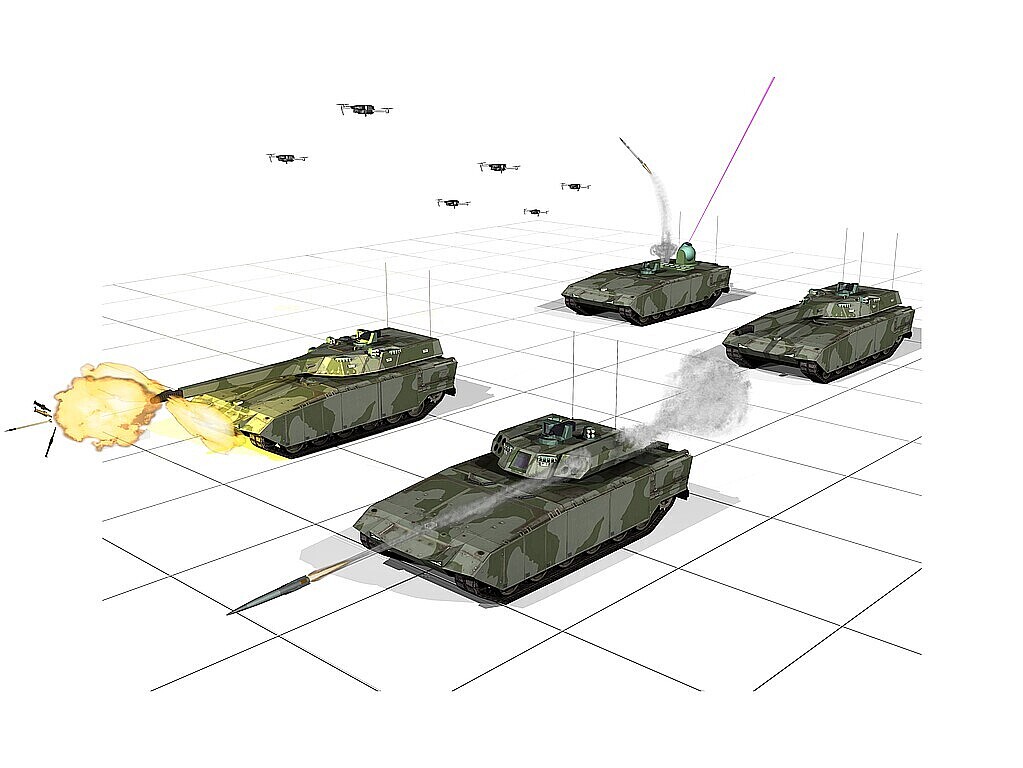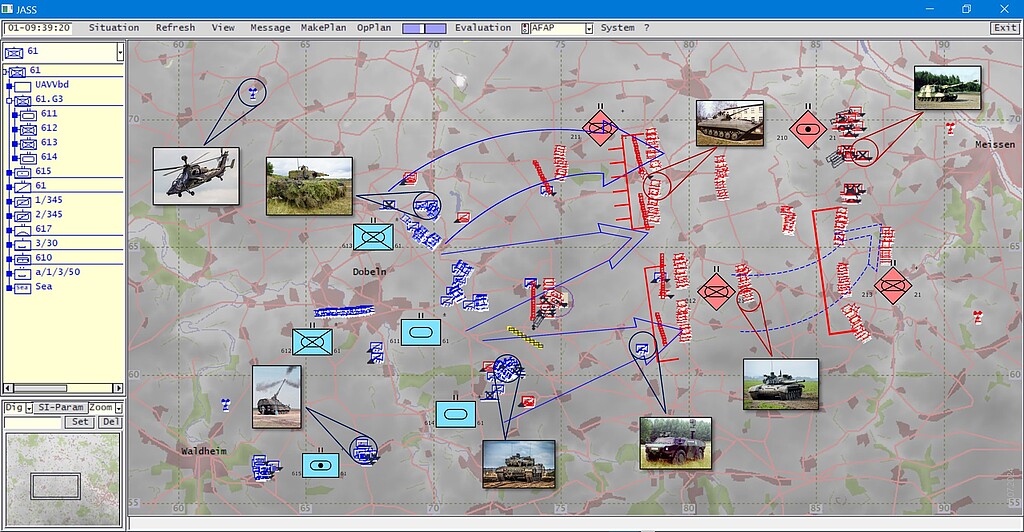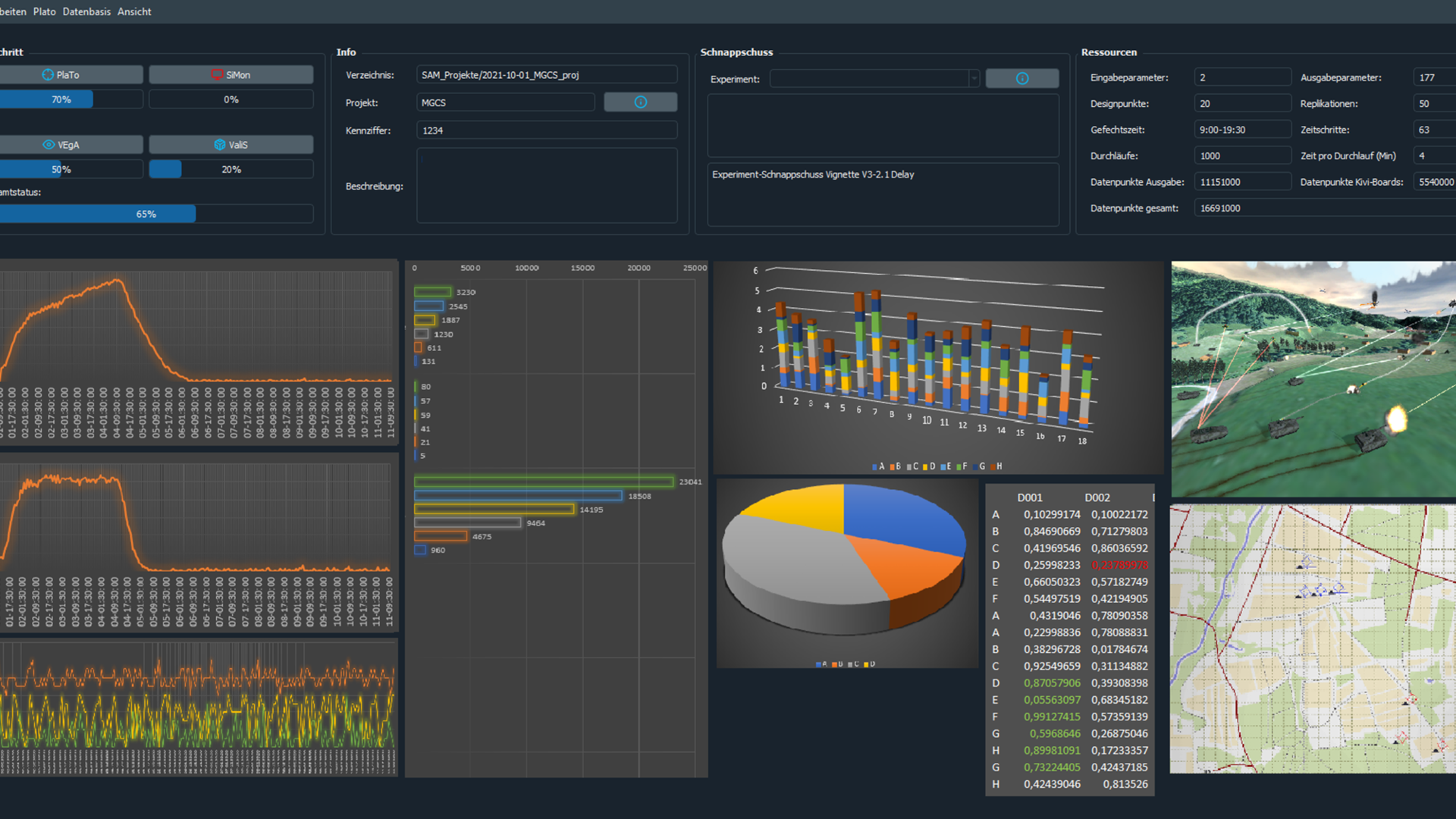- Home
- Industries
- Defence
- Simulation-based battle analyses with JASS
- Home
- Industries
- Defence
- Simulation-based battle analyses with JASS
JASS - a constructive simulation system
The Joint Agent-based Simulation System (JASS) is a constructive simulation system that simulates multidimensional operations and battles from the individual platform level up to large formations (brigade/division) on a fully agent-based basis.
The JASS simulation system has been developed to support tasks in the application areas of Analysis & Planning (armed forces) and Development & Procurement (armaments), among others, and is used nationally and internationally for such studies. In this area of application, JASS is used both to support cross-category capability studies at the tactical level and to support capability category-specific studies in the tactical-technical area.

JASS provides a Problem- and Application-Specific Architecture
Combat vehicles and individuals are represented in the simulation with their capabilities such as reconnaissance, mobility, protection, communication, camouflage, command and control or effects with parameterizable data.
The complex behavior of these elements in simulated battles is represented using tactical rule sets in a separate scripting language (Generic Behavior Language). With the help of this scripting language, several thousand agents can be represented in real-time battles over several simulated battle days, in which output values such as losses, consumption or battle successes will be displayed for each element.
At the same time, technical and operational input variables can be varied in data farming experiments. These experiments are carried out to answer a wide variety of questions.
Operational findings can be derived on this basis:
Effects
What impact does the use of modified, new technical and tactical capabilities have on survival, resilience and mission accomplishment?
Capability aspects
Which aspects of ability have a greater impact, which less, and above all for what reason?
New skills
How can I incorporate changed, improved or new skills into my existing tactical plan in order to make the best possible use of them?
Course of Action
Which course of action brings the greatest operational added value in the field?

Consulting by means of simulation-based analyses
With this evaluation of new/modified technical and tactical capabilities, it is possible (even in advance) to determine general assessments and well-founded arguments for and against different aspects of modified and new capabilities and thus support task owners in their own assessment capability through a vendor-neutral perspective. Consulting using simulation-based analyses requires close cooperation between the analysis team and the task owners in order to ensure a continuous exchange of information, feedback and adjustments. It also requires a high level of expertise in the areas of modeling, simulation technology, tactics and use in joint operations and operational analysis.
Technical-logistical systems
In addition to combat influences, technical-logistical systems themselves have a major impact on material operational readiness. In the main military logistical processes (maintenance, materials management, technical-logistical management, etc.), issues arise that are related to the availability of weapon systems, the use of resources and the effects of bottlenecks.
The forecast of the overall system behavior with the help of technical-logistical simulations depending on the framework conditions with regard to material readiness is of decisive importance.

JASS enables you to perform operational analysis of complex multi-domain scenarios on a large-scale level, which in turn offers a resolution down to the individual systems.

How can we help you?
Please fill in the form and we will get in touch with you as soon as possible.
